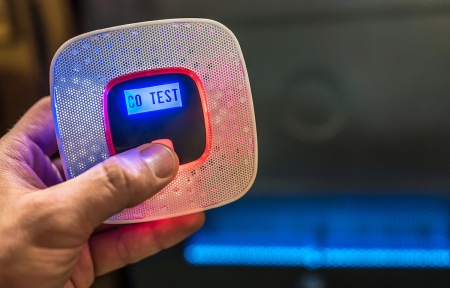Congress, the Food and Drug Administration (FDA) and the Federal Motor Carrier Safety Administration (FMCSA) have all been active in considering the regulation of products containing cannabidiol (CBD). Drivers of commercial motor vehicles, and their employers, should not assume that these products are legal, safe or harmless, however.
In the 2018 Farm Bill, Congress removed hemp (defined as cannabis with less than 0.3% THC) from the list of Schedule I controlled substances and made it an ordinary agricultural commodity. The recently passed 2020 Agriculture Appropriations Bill gave the FDA $2 million for research, policy evaluation, market surveillance and issuance of an enforcement discretion policy relating to products containing CBD. But the FDA has not yet established any regulations for the safe use of products containing CBD.
The FDA has a listing of resources on its website, fda.gov, regarding the use and regulation of CBD. But even though possession and use of CBD oil is legal under the laws of almost every state, and is used by many persons to treat a variety of conditions, including anxiety, depression, nausea, pain, sleep disorders and even acne, to date, the FDA has approved only one CBD product, a prescription drug product to treat two rare, severe forms of epilepsy. It is currently illegal to market CBD by adding it to a food or labeling it as a dietary supplement. The FDA has also released a great deal of consumer information on its website on the effects of and concerns relating to use of products containing CBD.
In November 2019, the FDA issued warning letters to 15 companies for illegally selling products containing cannabidiol (CBD) in ways that violate the Federal Food, Drug, and Cosmetic Act. The agency also published a revised Consumer Update detailing safety concerns about CBD products more broadly. Based on the lack of scientific information supporting the safety of CBD in food, the FDA has asserted that it cannot conclude that CBD is generally recognized as safe among qualified experts for its use in human or animal food.
The FDA website states: “The revised Consumer Update outlines specific safety concerns related to CBD products, including potential liver injury, interactions with other drugs, drowsiness, diarrhea, and changes in mood. In addition, studies in animals have shown that CBD can interfere with the development and function of testes and sperm, decrease testosterone levels and impair sexual behavior in males. Questions also remain about cumulative use of CBD and about CBD’s impacts on vulnerable populations, such as children and pregnant or breastfeeding women.”
Additionally, the FMCSA still requires drug testing of commercial motor vehicle drivers for marijuana and its main hallucinogenic component, THC. A driver who has used a product containing CBD runs the risk of a positive test for marijuana; because of lack of quality control in production, a person using products containing CBD cannot be certain of the concentration of THC in the product.
Thus, one truck driver recently filed a class action lawsuit in federal court in Illinois against a manufacturer of CBD oil, claiming that the product caused the driver to fail a DOT drug test. The complaint alleges that the defendant advertised its products as containing no THC, the main psychoactive chemical in marijuana. The plaintiff ate some “Just CBD” watermelon gummy rings, and later tested positive on a DOT drug test and was terminated. He filed suit under the Illinois Consumer Fraud and Deceptive Trade Practices Act on behalf of himself and all other persons similarly situated.
In addition, the Vermont Department of Motor Vehicles recently placed a driver out of service for 24 hours because he had a bottle of CBD oil in his vehicle. Your company drivers may face similar risks if they use these products.
The FMCSA has said that it will be issuing guidance to motor carriers and drivers on the legal implications of using products containing CBD, but that document is still in the works.








